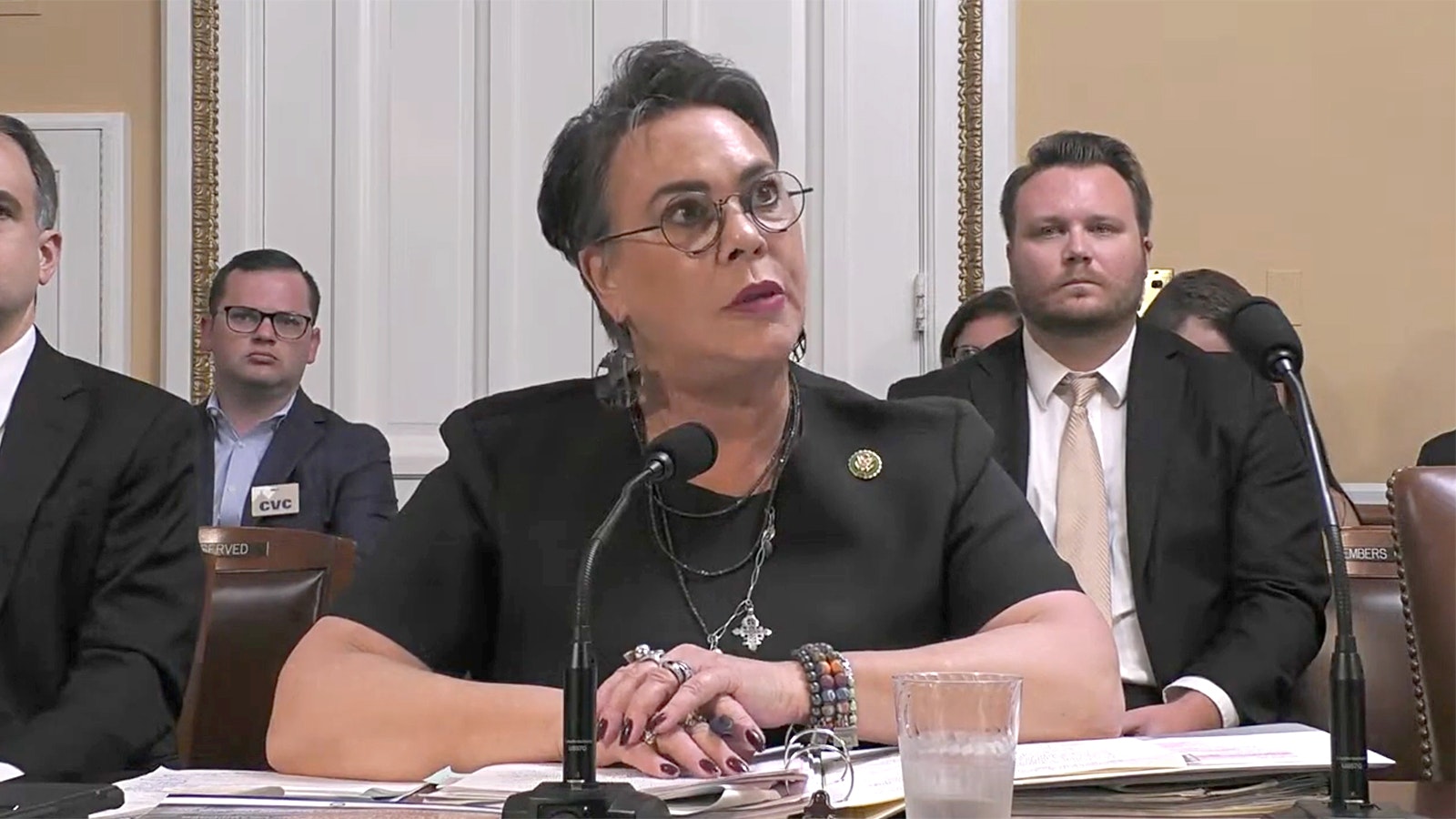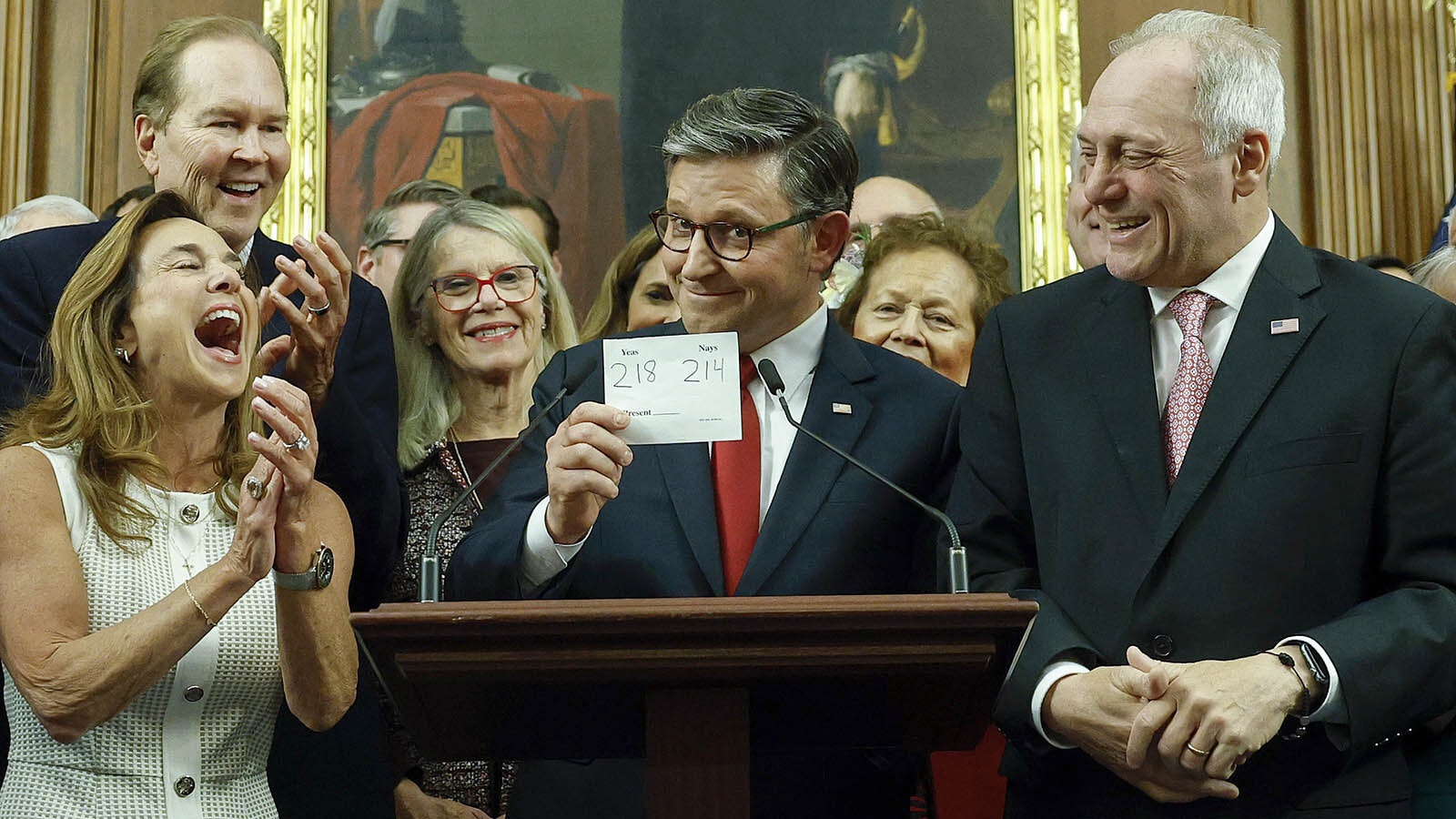U.S. Rep. Harriet Hageman, R-Wyoming, is championing a bill that would limit presidents in making major policy rules and allow federal agencies much less power to set their own regulations.
The Regulations from the Executive in Need of Scrutiny (REINS) Act would require congressional approval for all major rules that have an annual effect on the economy of $100 million or more.
“Unelected bureaucrats should not be making decisions that have economic impacts of $50 million or $100 million,” Hageman told Cowboy State Daily on Tuesday. “That should be left to the legislative branch.”
Be Careful What You Wish For
The bill would sharply curtail the ability of presidents and federal agencies to issue executive orders and set major rules. The heads of federal agencies are picked by sitting presidents.
Hageman, who said she adheres to a strict interpretation of the U.S. Constitution, said it isn’t a concern that the bill would reduce the power of future Republican presidents as much as it does for Democrats and the current administration under President Joe Biden.
She said the bill facilitates a more representative government and improves transparency in the federal regulatory process, which Article 1, Section 1 of the U.S. Constitution grants Congress the authority to manage.
“This is a constitutional issue,” she said. “The Constitution vests the legislative authority in the legislative branch.”
The REINS Act would require both chambers of Congress to approve a major rule, with no alterations, within a 70-day window. If both the House and Senate are unable to approve a major rule, it would not take effect and be tabled until the next congressional session.
“This bill is extremely important to Congress reclaiming its rightful authority and responsibility to legislate,” Hageman said.
She believes the bill would make the legislative branch more accountable to the American people and reclaim power from the executive branch.
Accountability
The doctrine of nondelegation is the theory that one branch of government must not authorize another entity to exercise the power or function it’s constitutionally authorized to exercise itself. Hageman said this theory has been used to transfer delegation power from Congress to federal agencies.
“It is what has allowed regulatory agencies to adopt regulations and even guidance documents that may impose economic costs in the billions of dollars on certain industries,” she told the House Rules Committee on Monday. “The current state of affairs has allowed unelected bureaucrats to legislate without any accountability whatsoever and allowed members of Congress to abdicate the most important power they have, the power to write the laws.”
Since the presidency of Franklin D. Roosevelt, there has been no fewer than 166 executive orders issued by any American president. During his three years in office, Biden has issued 115 executive orders. Trump issued 220 and Obama issued 276 during his eight years as president.
“What’s been happening in spades over the last 30 years, and what really started under President Roosevelt in the late 1930s, has been largely in contrast to what the Constitution requires,” Hageman said.
Congress Shouldn’t Pass The Buck
If passed, the REINS Act would likely prevent actions like Biden’s proposed student loan moratorium and a past proposal from the U.S. Department of Agriculture requiring RFID ear tags on all cattle, which Hageman said would have caused a $2 billion economic impact.
On Tuesday, Hageman considered proposed regulation from the National Oceanic and Atmospheric Administration that would prohibit commercial boats ranging from 35 feet long to 65 feet from exceeding 10 knots in speed in the Atlantic Ocean. The regulation would cause an $84 billion economic impact.
“It will destroy all of our recreation and our fishery industries on the entire eastern seaboard of the United States for 90 miles out,” she said. “Why would be allowing a bunch of unelected bureaucrats to be making a decision of that magnitude?”
Hageman also believes Congress has delegated its power to federal agencies while failing to conduct oversight and accountability to the laws that it passes. This has been an overarching theme and driving statement behind many of the discussions Hageman has sparked since taking office.
“What I can’t figure out is, why anyone would oppose this,” she told the committee.
All 182 co-sponsors on the bill are Republican.
Expanding Legislative Powers
In 1996, Congress passed the Congressional Review Act, which grants Congress the power to review, by means of an expedited legislative process, new federal regulations issued by government agencies and, by passage of a joint resolution, to overrule a regulation.
Hageman said this has only been used about 20 times, because a president still has power to veto.
Congress passed five resolutions of disapproval during the presidency of Barack Obama, but he vetoed all of them. Former President Donald Trump signed 14 resolutions of disapproval into law. Biden has vetoed three since taking office.
The REINS Act aims to expand the CRA to require congressional approval of certain major agency regulations before those regulations are implemented. Rather than issuing resolutions of disapproval after a rule takes effect, the REINS Act seeks to give Congress the preemptive authority to halt the initial enactment of certain regulations.
Georgia Democrat Hank Johnson spoke against the bill Monday, describing it as part of a larger agenda brought by Steve Bannon, former chief strategist for Trump, to deconstruct the administrative state.
“That’s exactly what this legislation seeks to do,” he said. “The purpose of government is different from the purpose of business. Business is to make a profit.
“Government was established to afford mechanisms for justice, to promote domestic tranquility, to provide for the common defense, and most importantly promote the general welfare.”
By taking no action, Congress could possibly prevent existing laws from being implemented. It could also stop all major rules and delay public protections, such as limiting the amount of lead in children’s products, preventing salmonella contamination in eggs and introducing regulations on the safety of job sites.
Hageman doesn’t believe situations like these would happen and that Democrats like Johnson are promoting a false narrative.
“It isn’t an everyday function of the government that you have agencies adopting regulations that will have an economic impact of $100 million,” Hageman said. “The agencies will continue to carry out the authority that we have given them.”
Moving Forward
The REINS Act was reported to the House on Monday.
Hageman also supports a bill that would allow federal courts to overturn some agency decisions that they now could uphold under current law. Some of those decisions could affect federal spending by overturning regulations that impact direct spending, revenues and spending subject to appropriation.
Hageman introduced an amendment to this bill Monday, clarifying that judicial review would apply to agency guidance as well as congressional statutes and agency rules.
Leo Wolfson can be reached at leo@cowboystatedaily.com.





